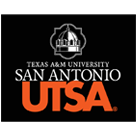Document Types
Individual Presentation
Start Date
2-24-2024 10:40 AM
End Date
2-24-2024 11:00 AM
Track
Culture and Pedagogy
Abstract
Research has shown that language brokering—i.e., the language practice whereby bi/multilingual individuals with no formal training in translation or interpreting linguistically mediate between two or more parties, usually adult family members and individuals from the dominant culture (Kam, 2011)—is a common language practice of heritage language (HL) speakers (e.g., Antonini, 2015; Cline et al., 2010; Hall & Sham, 2007; Kwon 2014; López, Lezama & Heredia, 2019; Orellana, Dorner & Pulido, 2003). Despite HL education’s recognition, validation, and integration of students’ language varieties and diverse community practices, language brokering is rarely acknowledged in pedagogical proposals and consequently not integrated as a language practice in classroom settings.
Therefore, this research-based presentation examines the connections between language brokering research and HL education and offers pedagogical recommendations to integrate students’ language brokering experiences in the HL classroom. First, the importance of explicitly recognizing and validating HL students’ language brokering experiences is discussed, and then, considerations to promote the development of professional translation and interpreting skills building on students’ language brokering experiences are offered. Recommendations will also be offered about engaging students as translators in their local communities through community-engaged learning practices. These considerations may serve as a starting point for researchers and practitioners to integrate translation and interpreting more systematically into HL courses and programs.
Recommended Citation
Gasca Jiménez, Laura, "From language brokering to professional translation in HL education" (2024). 11th National Symposium on Spanish as a Heritage Language. 11.
https://digitalcommons.tamusa.edu/heritage_spanish/SCHEDULE/Saturday/11
Included in
Bilingual, Multilingual, and Multicultural Education Commons, Language Interpretation and Translation Commons
From language brokering to professional translation in HL education
Research has shown that language brokering—i.e., the language practice whereby bi/multilingual individuals with no formal training in translation or interpreting linguistically mediate between two or more parties, usually adult family members and individuals from the dominant culture (Kam, 2011)—is a common language practice of heritage language (HL) speakers (e.g., Antonini, 2015; Cline et al., 2010; Hall & Sham, 2007; Kwon 2014; López, Lezama & Heredia, 2019; Orellana, Dorner & Pulido, 2003). Despite HL education’s recognition, validation, and integration of students’ language varieties and diverse community practices, language brokering is rarely acknowledged in pedagogical proposals and consequently not integrated as a language practice in classroom settings.
Therefore, this research-based presentation examines the connections between language brokering research and HL education and offers pedagogical recommendations to integrate students’ language brokering experiences in the HL classroom. First, the importance of explicitly recognizing and validating HL students’ language brokering experiences is discussed, and then, considerations to promote the development of professional translation and interpreting skills building on students’ language brokering experiences are offered. Recommendations will also be offered about engaging students as translators in their local communities through community-engaged learning practices. These considerations may serve as a starting point for researchers and practitioners to integrate translation and interpreting more systematically into HL courses and programs.

